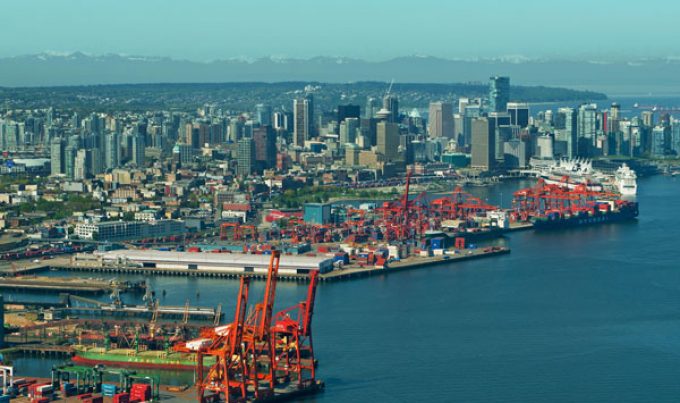Resolution of Canadian port disputes may be in the works again, after the early hours deal

Business disruption on Canada’s west coast may be close to resolution again, after the massive development in the early hours of the day when a “temporary” deal was reached.
A compromise secured by the leadership of the International Warehouse and Shore Union (ILWU) was rejected by its members on July 22.
Today, the International Media Union (ILWU) said it was “happy to announce that we have reached a negotiated interim settlement with BCMEA.”
After talks failed at the end of June, the International Women’s Federation called a strike for July 1, which ended on July 13 when an agreement was reached, brokered by a federal mediator instigated by Federal Labor Minister Seamus O’Regan.
However, it was not adopted by the ILWU caucus, resulting in a new strike being declared, which was stopped in its tracks by the Canadian Industrial Relations Board (CIRB) who ruled that the renewed strike was illegal without 72 hours’ prior notice. ILWU served notice within hours, only to withdraw it later that same day. Later, the caucus of ILWU approved the agreement and passed it to the members for voting, and the majority voted on it.
Concerns were mounting that failure to reach an agreement quickly would open the door to another shutdown of work at two of Canada’s three largest ocean gateways.
On the union’s website, ILWU Canada President Rob Ashton called on marine employers to negotiate directly with the union rather than the BCMEA employers’ association. She has expressed her disappointment that the union decided to turn down a “good deal” and criticized the IMFW’s leadership for its handling of negotiations and “erratic procedures in the past month”.
Business interest groups quickly called on Ottawa to intervene and impose a binding solution to prevent the strike from resuming. The Canadian Confederation of Independent Business criticized the union’s rejection of the brokered deal as “irresponsible” and renewed its call for government intervention.
“If the union issues another 72-hour strike notice, the government will need to introduce legislation to return to work immediately,” she said.
The government has resisted calls to recall Parliament from its summer recess to force back-to-work legislation, but the prime minister convened a government incident response group in Ottawa to discuss the matter on July 19 – a move usually taken in times of national crisis.
Mr. O’Regan indicated that Ottawa’s patience may be wearing thin and said he directed the Canadian Industrial Relations Board to determine whether workers’ rejection of the agreement meant a negotiated settlement was impossible.
“If the Board determines that this is the case, I have directed it to either impose a new collective agreement on the parties or impose final binding arbitration to resolve the outstanding terms of the collective agreement,” he declared.
The latest agreement, reached with the help of the Industrial Relations Board, will be brought before union members for another vote, although details of when have yet to be announced.


